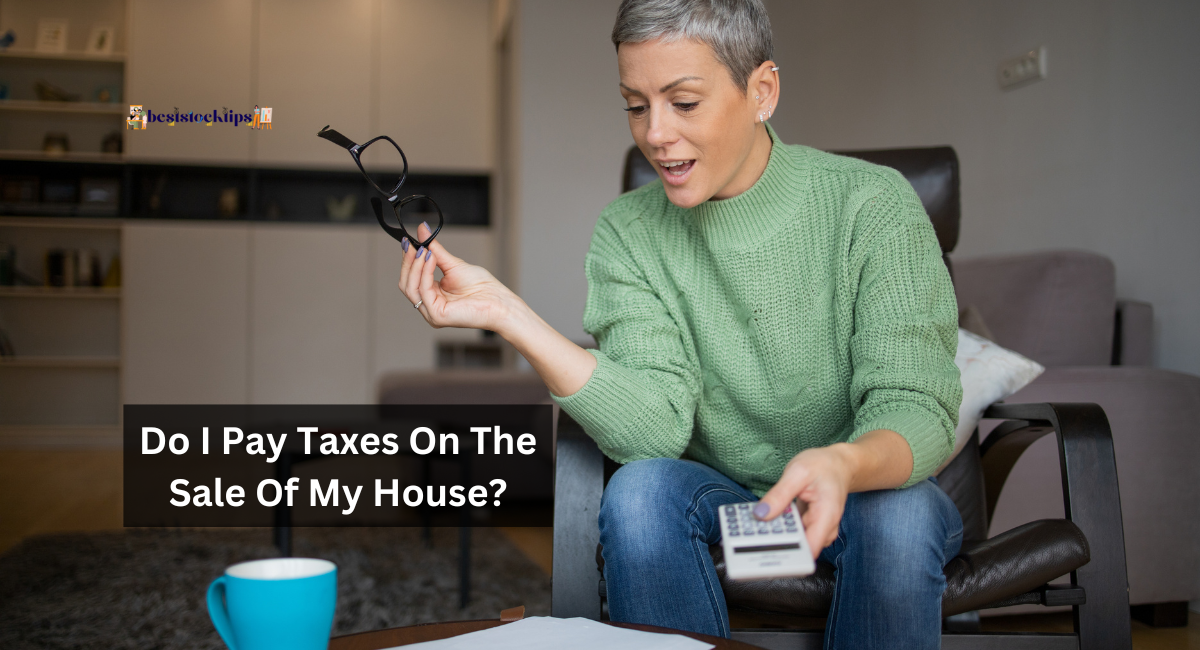The looming subject of tax ramifications often surfaces amid the exhilaration of selling a home. While selling a home can be a significant financial milestone, managing the tax responsibilities associated with this transaction can be difficult.
Understanding the tax ramifications of selling your home is critical to avoid financial setbacks or penalties. Whether you are a seasoned homeowner or a first-time seller, understanding the complexities of property sales and taxation is essential for making informed decisions and adhering to the law.
Let’s unravel the complexities of whether you owe taxes on the sale of your home and investigate the elements that may alter the taxable amount.
Do I Pay Taxes On The Sale Of My House?
If you sell your home for more than you bought for it, you may be subject to capital gains tax. However, there are several circumstances in which you may need to pay more taxes, if any.
The first $250,000 of any profit from the sale is not taxed if you are single and have lived in your home for two of the five years before the sale. The tax-free amount goes up to $500,000 if you are married and make a joint tax return.
It should be noted that these figures pertain to profit rather than income. This means that the tax is calculated on the net amount after expenses from the sale of your home. So, it refers to the difference between the original purchase and sale prices rather than the overall amount of money you make from selling your home.
How Do I Apply For This Tax Credit?
There are three requirements you must pass for the profit from the sale of your primary residence to be tax-free:
Ownership
You must have owned the property for at least two years (730 days or 24 complete months) before the date of sale. It does not have to be continuous, nor does it have to be within the two years preceding the sale. You would still qualify under this test if you resided in a house as your primary residence for a decade and then rented it out for two years before the sale.
Use
You must have lived in the home you are selling for at least two of the five years preceding the date of sale.
Timing
You have not deducted the gain from the sale of another home within the last two years.
Considerations And Special Circumstances
Several unique factors may impact your tax liability when selling a home.
1. Selling A Second Home Or Investment Property
The capital gains exclusion for a primary residence does not apply if you sell a vacation home or an investment property. In such circumstances, you may be required to pay capital gains taxes.
2. Unforeseen Occurrences
Certain unforeseen occurrences, such as divorce, job change, health concerns, or other unanticipated circumstances, may qualify you for a partial deduction, even if you still need to meet the two-year residency requirement.
3. State Taxes
In addition to federal taxes, think about your state’s tax regulations. Some states have property taxation standards, which may differ from federal guidelines.
4. 1031 Exchange
A 1031 exchange permits you to postpone paying capital gains taxes by reinvesting the sale profits in another investment property.
Consultation with a Tax Professional
Because of the complexities of tax laws and their variances, consulting with a tax professional or accountant can provide vital insight into your specific position.
How Do I Determine If I Need To Pay Capital Gains Taxes On The House I Sold?
Everyone who gets Form 1099-S profits from Real Estate Transactions at closing will have to pay capital gains tax on the sale of their home and report the money they made on their tax return. The IRS gets a copy of the 1099-S too.
If you get a Form 1099-S and suspect you may be eligible for capital gains tax exclusions, consult with a professional before closing, such as your real estate agent or attorney, to avoid having the form filled. If you receive the form in error, make sure you have documentation of how you qualify, and consult with your accountant or attorney about how to report the property sale on your taxes.
The amount of taxes you owe on the sale of your home is determined by a number of criteria, the most important of which are the length of your homeownership and the total capital gains from the sale. The IRS grants exclusions for gains on the sale of a primary property, but certain conditions must be met in order to qualify. Understanding these restrictions and seeking professional assistance can help you stay in line with tax laws and potentially decrease your tax burden when selling a home.
Remember that tax rules are subject to change, and particular circumstances can significantly impact tax responsibilities. As a result, remaining informed and seeking competent guidance is critical when dealing with the tax consequences of selling your house.
Thanks for reading the article….
